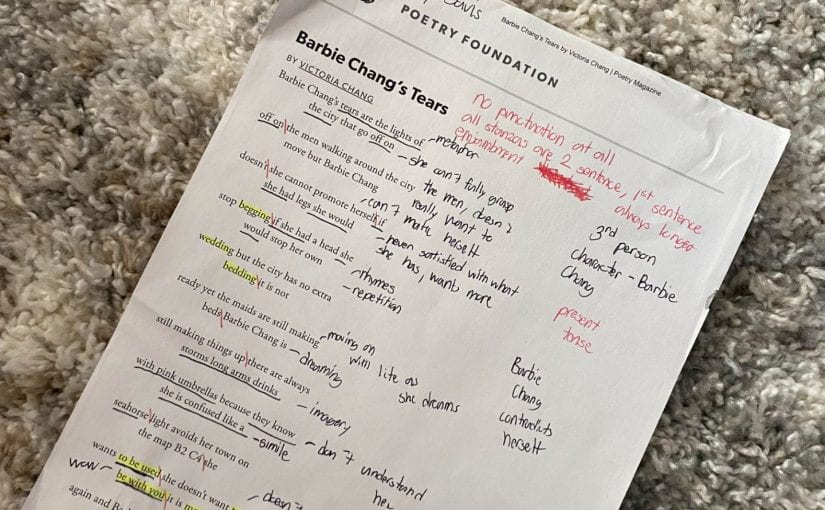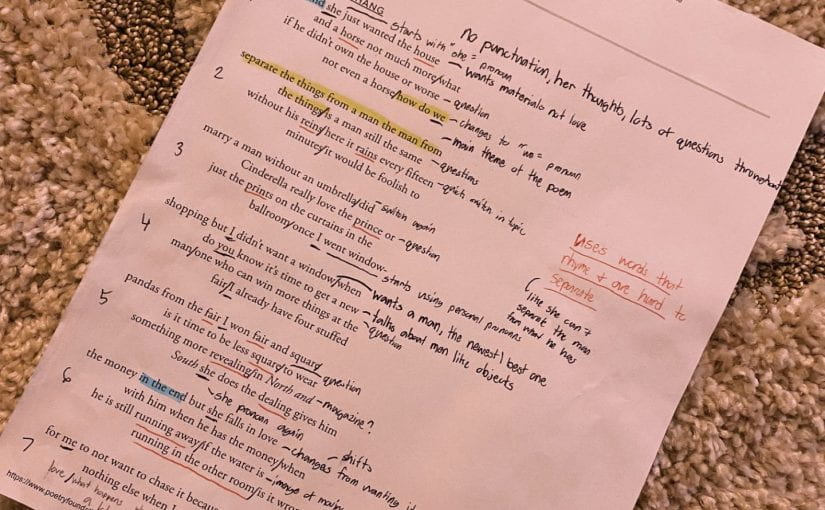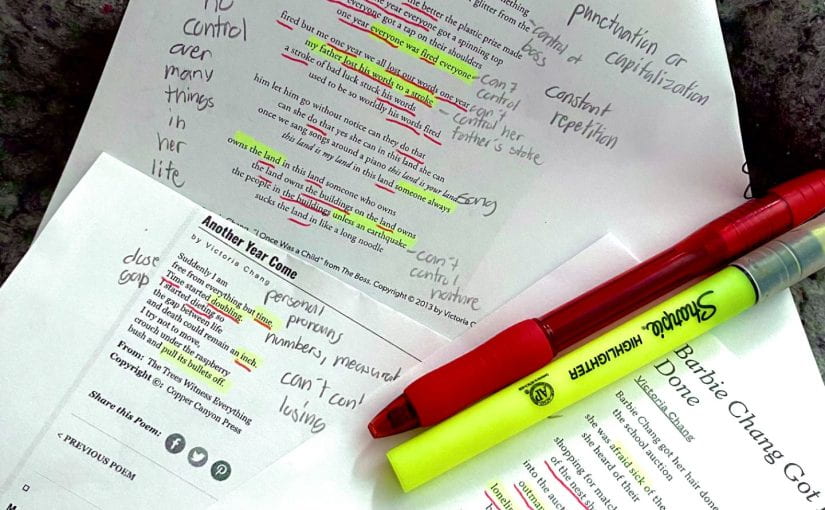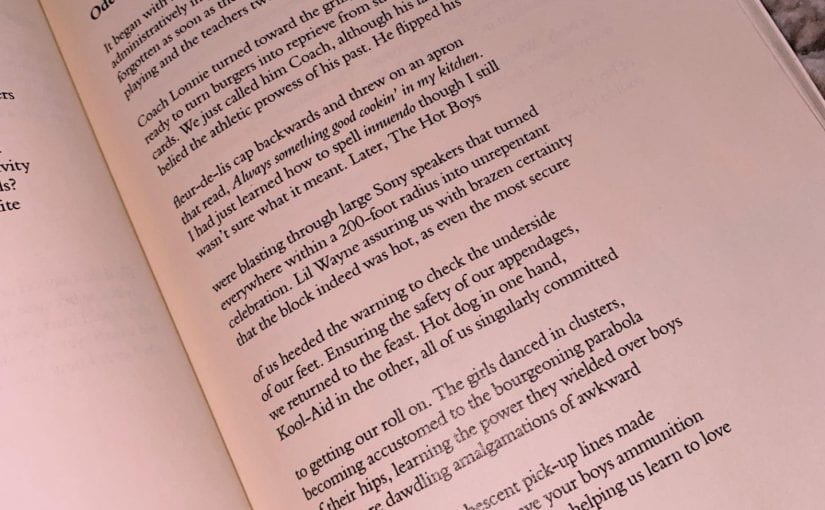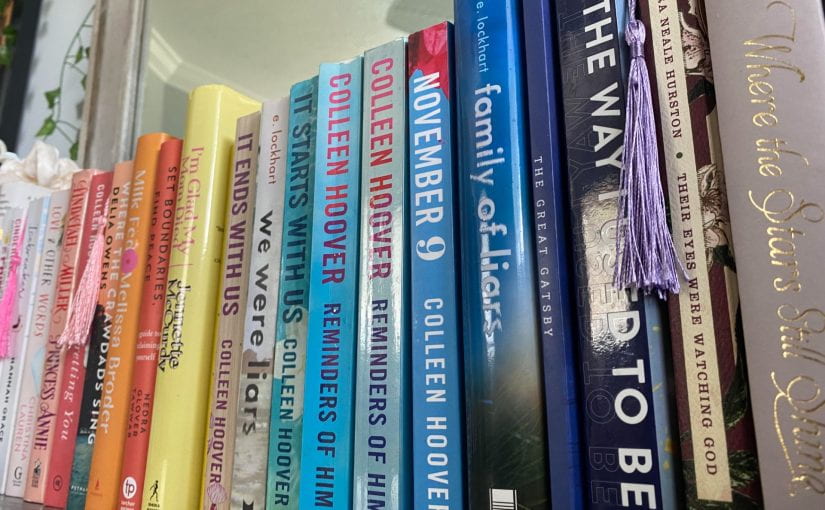In Victoria Chang’s “Barbie Chang’s Tears”, the idea of never being satisfied and dreaming of something that you carve but don’t actually want in real life is illustrated. This poem is told in third person point of view about the character Barbie Chang. The reader is able to see Barbie Chang’s struggles as she is experiencing them. The poem has present tense throughout it, which leads to the idea that Barbie Chang is actively trying to figure out her issues.
The lack of punctuation and capitalization in this poem adds to the idea that the poem is following Barbie Chang’s train of thought. This type of structure is similar to poet E.E. Cummings, who avoided punctuation and capitalization in his works like “[i carry your heart with me(i carry it in]”, which was published in 1952.
However, this choice of structure made parts of the poem hard to understand at times. At the end of the seventh stanza and into the eighth stanza, the line reads, “there are always storms long arms drinks with pink umbrellas.” During my first read-through, I had no idea what this line meant. I couldn’t decide where the sentence started or stopped. It took me reading the poem multiple times and coming to the conclusion that the poem was about dreaming and fantasizing before I could begin to understand the imagery in that sentence.
The entire poem is full of poetic techniques like imagery, metaphors, similes, repetition, and words that rhyme or phrases that sound similar. The poem begins with a metaphor stating how the tears of Barbie Chang “are the lights of the city”, which ties into the next line about “men walking around the city” and how she can’t seem or want to grasp onto them. There is repetition of the phrase “if she had” and “she would”. This demonstrates how Barbie Chang is dreaming of something more and how unsatisfied she is. Barbie Chang’s mind appears to be all over the place and the simile “she is confused like a seahorse” confirms that.
The middle of the poem begins the use of rhyming with “begging, wedding, and bedding”. Later on the phrases “to be used” and “to be with you” are presented. I adore the use of these similar-sounding phrases and how Barbie Chang would rather be used and not with someone. That is the opposite of what someone would usually want or expect from a woman, but it adds to how complex and confusing Barbie Chang really is as a character.
Chang also does a great job of creating an image that is like a dream. This choice helps cement the idea that Barbie Chang is dreaming of a life that is more than she already has and contains men that she doesn’t even want in real life. That sentence almost seems to contradict itself, but the poem pretty much contradicts itself. Barbie Chang spends her time “mourning the men the night” that she has in her dreams, however, it states how “she doesn’t want to be with you” and how as the men move around in the city “Barbie Chang doesn’t”. She fantasizes about life being like her dreams, but in reality, Barbie Chang just likes the idea of that life and doesn’t actually want it.
(549)
